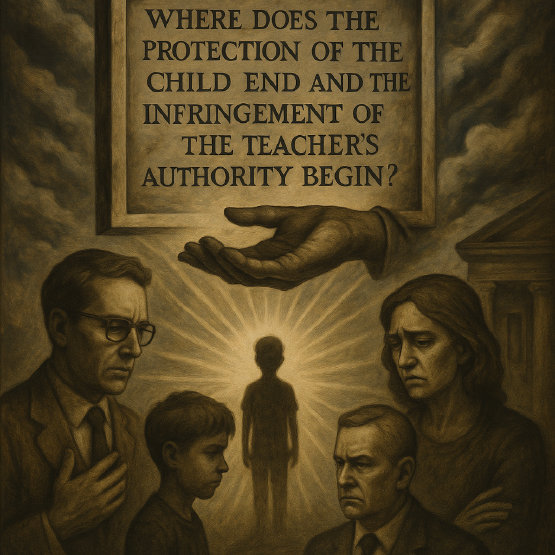Reflection on Educational Authority, Child Protection, and the Future of Education
Balancing Child Protection and Teacher Authority
Modern education faces a complex challenge that encompasses the legacies of the past, the challenges of the present, and the possibilities of the future. Among these, the balance between child protection and teachers' rights transcends a simple issue, raising fundamental questions about the essence of education, human dignity, and the values that communities should aspire to. Child protection has long been regarded as a top priority in education. Ensuring that students can grow in a safe and respectful environment is the foundation of education and a promise that society as a whole must uphold. However, excessive protection can undermine the legitimate authority of teachers and paradoxically weaken students' autonomy and sense of responsibility. The 'Child Innovation Party' incident is a representative case that reveals this complexity and dual dilemma.
The meaning and importance of educational rights
Teachers' rights go beyond mere professional authority they form the foundation of sustainable leadership that enables the philosophy and practice of education. Teachers guide and instruct students, often serving as navigators that suggest directions in life. However, in modern society, where freedom of expression and democratic values are expanded, teachers' words are questioned and their authority is shaken. This change suggests that the classroom is transformed from a space for knowledge transmission into a complex environment where conflict and negotiation coexist, highlighting the need for a reevaluation of teachers' roles and rights.
Questions Between Freedom and Authority
This reality prompts us to revisit the philosophical questions between freedom and authority. What values should education pursue, and how can the free growth of students and the guidance of teachers harmonize? This inquiry demands a deep reflection that cannot simply be resolved through laws or policies. Education is not just a process of conveying knowledge it is a journey of shaping character and growing as a member of the community. In this sense, educational authority should be understood not as oppression, but as a form of protection.
Institutional Movements for Achieving Harmony
To achieve this harmony, it is necessary to think and act at various levels. Institutionally, a legal framework should be established that guarantees the legitimate authority of teachers while harmoniously incorporating students' rights to express themselves and their autonomy. Additionally, the curriculum should be restructured in a way that balances normative values, ethical responsibilities, autonomy, and a sense of community. Through this, an environment can be created where both teachers and students are respected.
Insights from International Cases and Korean Education
The examples of various advanced educational countries, including Finland, Germany, and Canada, show how they are achieving a balance between student rights and teacher authority. These countries provide valuable insights into how they socially support the professionalism and authority of teachers. Through this, we gain an opportunity to understand both the institutional strengths and cultural limitations of education in Korea.
The necessity of ongoing public discourse and consensus
Ultimately, solving this issue is not a one-sided 'answer' but a continuous process of 'conversation.' Education is a collaborative effort that takes place within living relationships, requiring ongoing public discourse and consensus involving students, teachers, parents, and policymakers. Such dialogue will contribute to creating a better educational environment by integrating diverse perspectives and experiences.
Direction of Future Education and Integrative Thinking
The education of the future cannot operate based solely on fragmented technologies or systems. In an era where artificial intelligence, digital technologies, and new forms of communication are introduced, we must envision new educational models based on broader and deeper humanistic reflection and integrative thinking. Technology is just a tool, and at the center of education, there must always be humanity. Therefore, the education we should aspire to is not merely about 'teaching well' but about 'growing together.'
Reexamining the Essence of Education
A space for new learning opens up where children can think freely and teachers are respected, and where each other's rights are honored. Through this process, we can reflect on the essence of education—deeply understanding humanity and creating a better community. Therefore, it is important for all members of the educational community to grow together, thereby fostering the development of the community as well.

Post a Comment